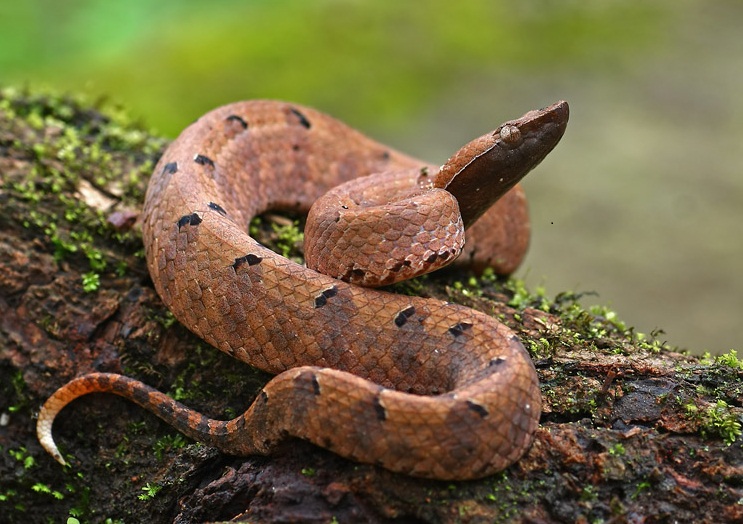The hump-nosed pit viper (Hypnale hypnale)
December 30th, 2018
Kumar KS, Narayanan S, Udayabhaskaran V, Thulaseedharan NK.
Clinical and epidemiologic profile and predictors of outcome of poisonous snake bites – an analysis of 1,500 cases from a tertiary care center in Malabar, North Kerala, India. Int J Gen Med. 2018;11:209-216. Published 2018 Jun 5. doi:10.2147/IJGM.S136153
- No antidote available for its deadly venom.
- Also called the hump-nosed moccasin for its pointed and upturned snout
- A major killer endemic to the Western Ghats, a mountain range of South India, and Sri Lanka.
- The standard polyvalent antivenom used for the four most poisonous snakes of the region — the Indian cobra (Naja naja), Indian krait (Bangarus caeruleus), Russell’s viper (Daboia russelii) and saw-scaled viper (Echis carinatus) — does not work on hump-nosed pit viper venom.
- Hump-nosed pit viper envenomation typically brings on acute kidney injury leading to corticoid necrosis and death

